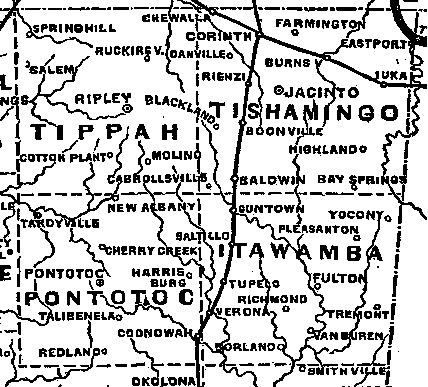 While the Confederate capital of Richmond is threatened by Union advances, the war in the Western theater is also going badly for the South. U.S. General Ulysses S. Grant, driving further southward, is now in Mississippi. The Confederates scramble to halt the Union advance, and today battle erupts in Farmington.
While the Confederate capital of Richmond is threatened by Union advances, the war in the Western theater is also going badly for the South. U.S. General Ulysses S. Grant, driving further southward, is now in Mississippi. The Confederates scramble to halt the Union advance, and today battle erupts in Farmington.
Settled around the turn of the century, Baptists from the Carolinas, Georgia and Virginia had been disproportionately represented among the earliest arrivals. The Farmington Baptist Church had been established as early as 1800.
Grant had sent General Pope to occupy Farmington on May 8, a move that today draws Confederate General P. T. Beauregard from his defensive position. The Confederate’s spirited offensive, coupled with the Union Army’s unfamiliarity with the surrounding swampy terrain, leads the cautious Pope to retreat before a Confederate army of significantly less manpower. The battle leaves 16 Union soldiers and 8 Confederate soldiers dead, while the town of Farmington suffers extensive destruction. Most buildings are destroyed, including the Baptist church. The church is rebuilt after the war, and as late as 1944 eyewitness accounts indicate that two trees in the church yard that had been wounded by cannon ball were yet standing.
Farmington is one of many Baptist churches in the South that is destroyed during the war.
Sources: “Farmington History” (link); “Battle of Farmington Reenactment” (link)


